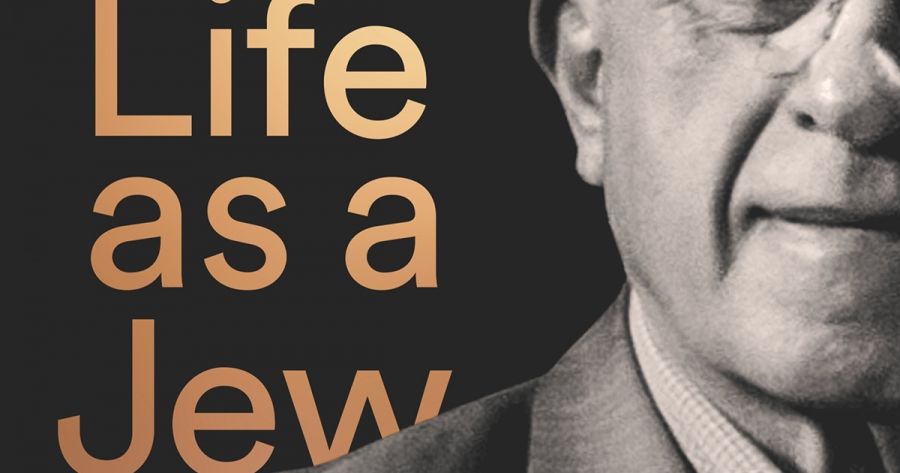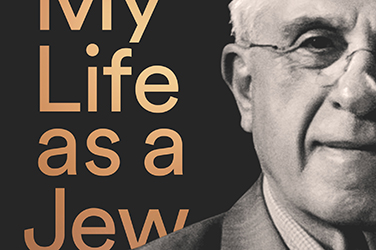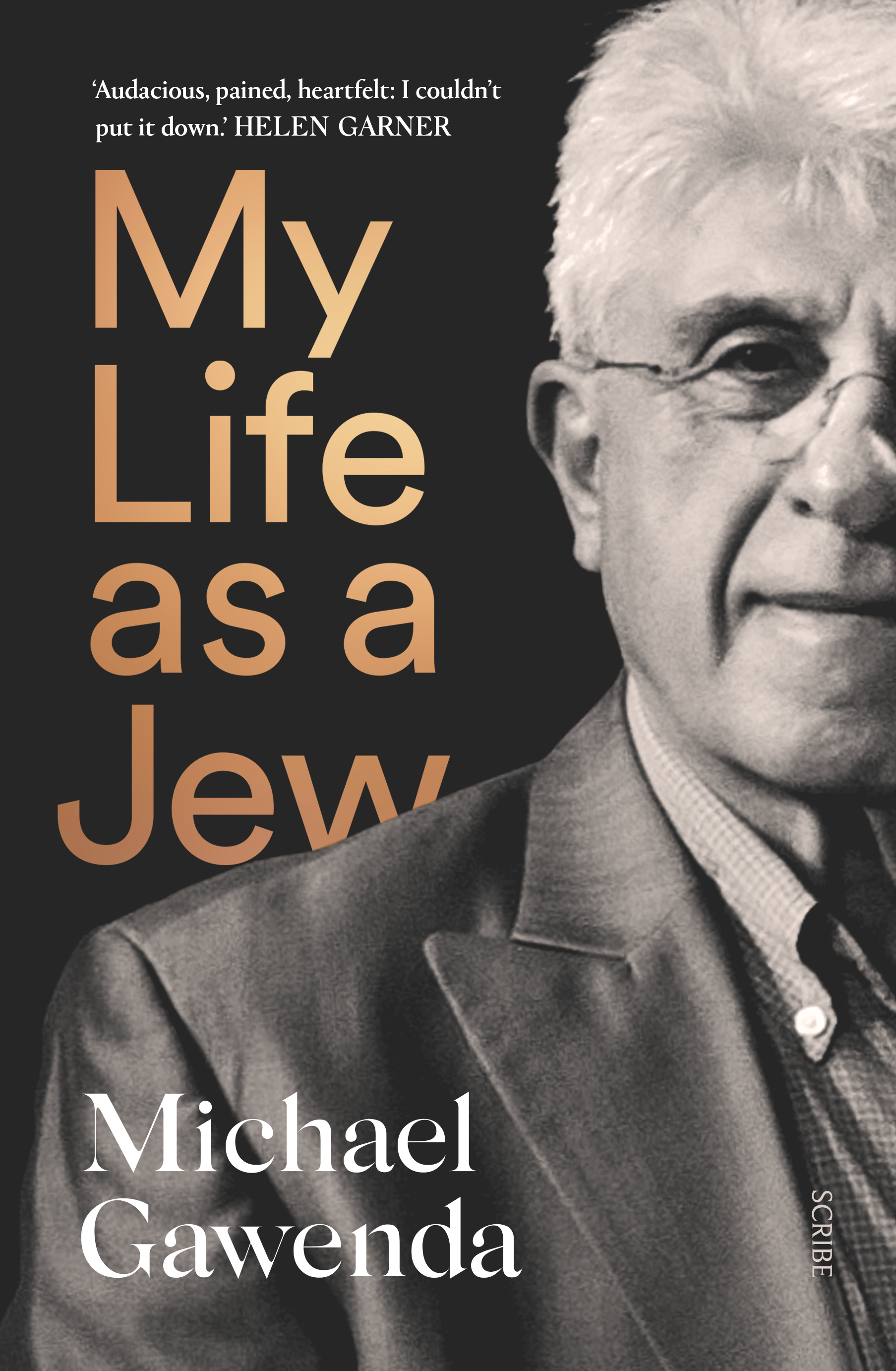
- Free Article: No
- Contents Category: Memoir
- Review Article: Yes
- Article Title: Gawenda's journey
- Article Subtitle: A deeply personal story about Jewish identity
- Online Only: No
- Custom Highlight Text:
Michael Gawenda has written a deeply personal story about his Jewish identity. It comes during a period when conflict in Israel/Palestine has been painful for all. While he remains committed to a two-state future that supports the rights of both Israelis and Palestinians to live in their own countries, the author critiques influential sections of the political left where acceptance has come to require demonising the Jewish state. A key message of the book is that too often on the left the only good Jew is one who publicly rejects Israel’s right to exist and remains silent when it is declared racist and nothing more than a coloniser of an indigenous population.
- Featured Image (400px * 250px):

- Alt Tag (Featured Image): David Trigger reviews 'My Life As a Jew' by Michael Gawenda
- Book 1 Title: My Life as a Jew
- Book 1 Biblio: Scribe, $35 pb, 277 pp
- Book 1 Cover Small (400 x 600):

- Book 1 Cover (800 x 1200):

Gawenda’s personal journey is about working out what sort of Jew he is and may become. His commitment is to the continuity of Jewish peoplehood while acknowledging some complexities. His reading of the disagreement between Gershom Scholem and Hannah Arendt, Jewish intellectuals who disagreed after the Holocaust about the Zionist project, is a highlight of the book. Gawenda sides with Scholem’s commitment to Jewish particularity and to Israel against Arendt’s universalist leanings and embedded life in New York. He rejects Arendt’s famous dictum that there was a ‘banality’ about the evil evident at the Jerusalem trial of senior Nazi Adolf Eichmann in 1961.
When Arendt wrote Eichmann in Jerusalem (1963), she did not know of the accused Eichmann’s ferocious anti-Semitism, which was subsequently revealed in nostalgic conversations recorded by a Dutch Nazi journalist in Argentina prior to Eichmann being captured by the Israelis in 1960. Gawenda’s point is to caution against diminishing the virulent racism of the Holocaust by reducing the Jew-hatred to a more general crime against humanity. That approach enables support for a hopelessly unrealistic alternative to Israel of a single liberal state where Jews would be a minority but somehow safe and free.
As for so many Jewish people, politically progressive or otherwise, Jewish identity is entangled intimately with psychological burdens that come with knowledge of the horrors of the Holocaust. The author’s parents were shaped by their flight from Poland and by the murder of family members left behind. They escaped with his two older sisters in August 1939, just before the German invasion. The family lived for three and a half years, when he was an infant, at a displaced persons’ camp in an outer suburb of the city of Linz in Austria.
This was a time, as the author puts it, that was a heartbeat after the shadow of Jewish powerlessness and its terrible consequences. Young people who had joined the Zionist dream of recreating the Jewish homeland visited camps to encourage relocation to the newly established state of Israel. They danced and sang Hebrew songs more than celebrating any possible survival of the Yiddish language and culture of eastern Europe. Gawenda’s mother shared the aspiration to live in Israel but the family arrived in Melbourne in 1949, a time when many countries restricted entry for Jewish refugees. It was the context in which the author’s sisters became lovers of Israel, lifelong Zionists, and despisers of all who belittled it or wished it harm. Their mother sent boxes of tinned food to family members there.
Gawenda grew up, with his father’s influence, to be committed to internationalism, socialism, secularism, and democracy. He became a left-wing Jew like his father and attended a Bundist youth group that was a tiny outpost of what had been the Jewish socialist political movement of eastern Europe. Though unsupportive of Zionist nationalism and militantly secular at the time, its ideology was committed to Yiddish culture, language, and Jewish peoplehood. The book traces the author’s subsequent trajectory towards his conviction that recognition of Israel is necessary for Jewish continuity and that Israel’s achievements over the past seventy-five years have been momentous. They include the creation of a home for Europe’s refugees, and for Jews from Arab countries and North Africa, the Soviet Union, and Ethiopia. The revival of the Hebrew language to become the spoken and written signature of the re-established nation is but one of the extraordinary successes that Gawenda acknowledges in the book.
The author’s career as an Australian journalist and newspaper editor informs his discussion of the independence of reporting that he values highly. He is troubled by commentators’ criticisms of Jewish writers when it comes to narratives about Israel, Palestine, and anti-Semitism. When renowned Age cartoonist Michael Leunig suggested in a 2002 work that Jews were behaving as their Nazi persecutors had done, Gawenda decided against its publication. He complains that the decision was condemned with reference to his being too soft on the Jews. He was told by one correspondent to get over the trauma of being a second-generation Holocaust survivor, received hate-filled emails, and was told he was inordinately favouring Jewish interests. However, other editors at The Age agreed with his decision, which was based on discomfort with the cartoon’s suggested equivalence between Auschwitz, where a million Jews were gassed and burnt in crematoria, and a Palestinian refugee camp. Gawenda’s understandable view was that such a message was at best based on ignorance and at worst an act of bad faith.
The author notes that accusing Israelis, and by extension Jews, of behaving like Nazis is now commonplace among parts of the far left. Social media, he recounts, is full of it. He rejects the notion that he should become an anti-Zionist and erase the particularity of the Jewish experience to avoid being disqualified from membership of the left. A social democrat, he declares his unambiguous commitment to Australia, as an Australian journalist and writer. Gawenda argues persuasively that Israel’s existence is one of the most remarkable things to have been achieved in Jewish history and that it would be a catastrophe if hostile forces were able to destroy it.


Comments powered by CComment